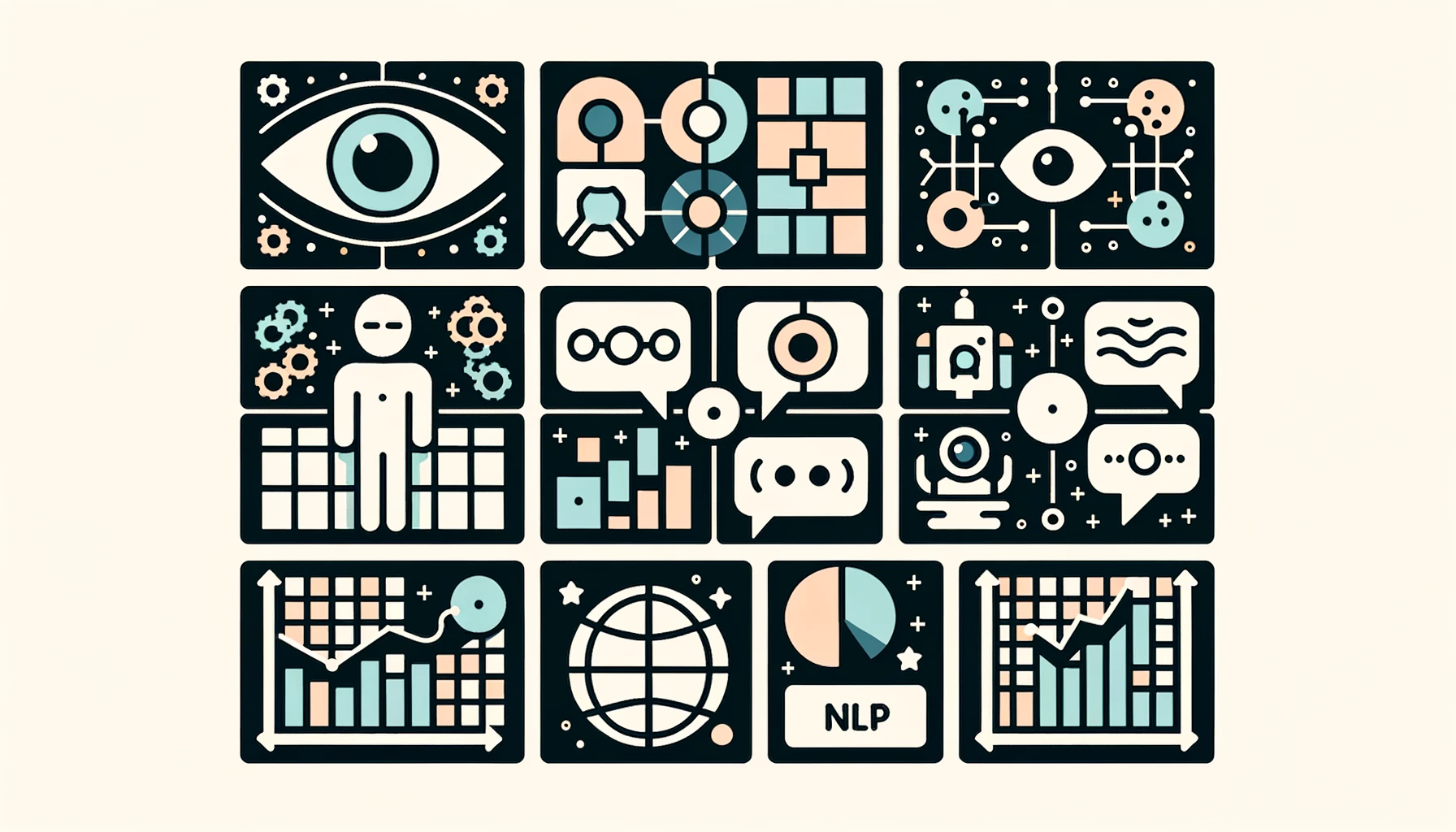Enhancing Worship Experiences with AI-Generated Elements
AI should never replace pastors!
That's an assertion that strikes a chord with many Christians today. We live in an era where artificial intelligence (AI) is seamlessly integrating into our daily lives, and its potential to transform worship experiences in profound ways is both exciting and, for some, unsettling.
Data reveals that congregations are increasingly open to technological enhancements in worship, with over 60% of U.S. churches adopting some form of digital or AI-based technology in their services. Today, we’ll dissect how AI-generated elements can enhance worship without sacrificing the irreplaceable human touch.
Let's dive into how AI can play a supportive role, enhancing our worship without overshadowing our communal and pastoral bonds.
Understanding AI-Generated Elements in Worship
AI-generated elements refer to digital content created through artificial intelligence algorithms. These can range from worship songs, visual backdrops, sermon aids, and even personalized Bible study tools like FaithGPT.
What AI-Generated Elements Can Do

- Visual Backdrops: AI can create stunning visual aids that align with sermon themes, enhancing the atmosphere of worship.

- Music Composition: Algorithms can assist in composing worship music, producing unique melodies and harmonies.
- Sermon Aids: AI-driven tools can support pastors by providing research assistance or generating engaging sermon outlines.
“I will praise the Lord according to His righteousness: and will sing praise to the name of the Lord most high.” - Psalm 7:17
Enhancing but Not Replacing
AI is meant to assist, they can't replace the fellowship and accountability found in group studies.
Personal Experience
In my role as a software developer and creator of FaithGPT, I constantly strive to blend my love for AI with my calling as a Christian. I've seen firsthand how AI tools can enhance our understanding of the Bible, but also how essential it is to preserve the human aspect of ministry.
Benefits of AI in Worship
AI-generated elements offer a myriad of benefits that can enrich worship experiences and foster spiritual growth. some of these advantages:
Spiritual Engagement
- Enhanced Visuals: AI-generated visuals can make worship more engaging, drawing the congregation deeper into the experience.
- Dynamic Sermons: AI tools can help pastors deliver more interactive and relatable sermons.

Accessibility
AI makes worship more accessible to those with disabilities or those who are homebound. For instance, AI can transcribe sermons in real time for the hearing impaired or generate closed captions for live-streamed services.
- Inclusivity: Tools ensure that everyone, regardless of their abilities, can participate fully in the worship experience.
- Remote Worship: AI supports high-quality live streaming for congregation members who cannot attend in person.
“For where two or three gather in my name, there am I with them.” - Matthew 18:20
Personalization
AI offers personalized experiences that can cater to individual spiritual journeys. This can range from personalized prayer prompts to tailored Bible reading plans.
Why Personalization Matters:
- Focused Growth: Personalized materials help individuals grow in areas they may be struggling with.
- Enhanced Engagement: Members are more likely to engage with content that feels specially catered to them.
Efficiency and Precision

AI can handle logistical tasks such as scheduling, presentation management, and music coordination with high precision. This can relieve church staff and volunteers, allowing them to focus more on ministry and less on administrative duties.
- Task Automation: Automates routine tasks that take up time.
- Precision: Ensures meticulous attention to detail.
Potential Pitfalls to Watch Out For
While AI can significantly enhance worship, we need to be cautious of some pitfalls:
Over-Reliance
- Depersonalization: Over-reliance on AI can lead to a depersonalized worship experience.
- Laziness in Creativity: We're called to use our God-given creativity, and substituting that entirely with AI can be counterproductive.
Ethical Concerns
- Data Privacy: AI systems often require user data. It's crucial to manage this data ethically.
- Bias and Error: AI isn’t perfect and can perpetuate biases present in the data it was trained on.
Loss of Traditional Aspects
There is a risk that classic or traditional aspects of worship might be overshadowed by technology. It’s important to strike a balance where AI serves as a complement rather than a replacement.
“Trust in the Lord with all your heart and lean with many advisers, they succeed.” - Proverbs 15:22
Continuous Evaluation
Regularly assess the impact of AI tools on your services. Are they enhancing the experience without taking away from the spiritual depth?
- Feedback Loops: Create channels for feedback from congregation members.
- Regular Reviews: Evaluate the effectiveness and ethical implications of AI tools in worship.
Educate and Train
Ensure that your staff and key volunteers are well-versed in the technology they will be using. This can be achieved through:
- Workshops
- Online Tutorials
- Continuous Training Sessions
Partner with Reputable AI Providers
Choose AI tools that come with strong reviews, ethical guidelines, and support communities. Companies that prioritize data privacy and ethical use are crucial.
Partnering Tips:
- Read Reviews: Look for consumer testimonials and professional reviews.
- Support: Ensure there is solid customer support and ongoing updates.
- Ethical Guidelines: Work with providers who have clear ethical guidelines.
Real-Life Examples and Case Studies
Here's how some churches are successfully using AI:
River Valley Church
Located in Minnesota, River Valley Church uses AI to enhance their worship music. They use an AI tool to generate chord progressions and melodies, which human musicians then refine and implement.
FaithGPT in Small Groups
In my own small group, we’ve integrated FaithGPT to deepen our Bible study discussions. It provides contextual insights and historical background, helping us grasp the scriptures better.
“Iron sharpens iron, and one man sharpens another.” - Proverbs 27:17
Highlands Church
Highlands Church uses AI to transcribe their sermons, making them accessible to anyone with hearing impairments or those who benefit from reading along.
Life Church
Life Church leverages AI-driven social media tools to engage their congregation throughout the week, providing daily devotionals and prayer prompts tailored to individual needs.
Balancing Tradition and Innovation
Maintaining a balance between traditional worship elements and technological advancements is crucial. AI can be a powerful assistant but should never become the centerpiece.
Staying Rooted in Scripture
Always ensure the content generated or assisted by AI aligns with Biblical truths and church doctrines.
Preserving Human Interaction
Personal interactions, pastoral care, and community fellowship should remain at the core of worship services.
Enhancing Community Engagement
Use AI to complement and extend traditional forms of community engagement.
- Support Groups: AI can help in organizing and facilitating virtual support groups.
- Outreach Programs: Assist in planning outreach and missionary activities.
“Let us not give up meeting together, as some are in the habit of doing, but encouraging one another.and all the more as you see the Day approaching.” - Hebrews 10:25
AI: A Tool for the Modern Church
Artificial Intelligence, when used correctly, can be a valuable tool in modern worship.
Enhancing Sermon Preps
Pastors can use AI tools to get inspiration for sermon outlines, but the human touch in delivering God’s message remains irreplaceable.
Worship Planning
AI can assist in planning worship services, ensuring a smooth flow and creative elements that enhance the worship experience.
“The preparations of the heart belong to man, but the answer of the tongue is from the Lord.” - Proverbs 16:1
Educational Programs
AI can help in creating engaging educational programs for various age groups, thus fostering a culture of learning within the church.
- Children’s Ministry: AI-driven tools can create captivating Bible stories for kids.
- Adult Classes: Tailored Bible study curriculums for adults.
Future of AI in Worship
Looking forward, AI can further enhance worship experiences. churches must be discerning, ensuring these technologies always serve to enrich, rather than diminish, our spiritual practices.
Advanced Personalization
AI could offer personalized prayer prompts or scripture reading plans tailored to individual spiritual journeys.
Collaborative Creation
AI could facilitate collaborative projects, combining efforts from across the global Christian community.
unblemished Integration
Future AI tools will likely integrate more seamlessly into worship services, making them easier to implement and more effective.
Ethical Considerations
While exploring AI's potential benefits, it's crucial to heed ethical guidelines:
Data Privacy
Safeguard congregation members' data with stringent privacy practices.
Transparency
Always be transparent about what data is collected and how it is used.
Community Involvement
Involve community members in discussions about the ethical use of AI, ensuring their concerns and suggestions are addressed.
“Whoever walks in integrity walks securely, but whoever takes crooked paths will be found out.” - Proverbs 10:9
FAQs
Q. Can AI replace pastors?
A. Absolutely not. AI can assist but not replace the unique and divinely inspired role of pastors.
Q. How can small churches afford AI technology?
A. Many AI tools are becoming more affordable and even offer free versions. Start small and comb through the options!
Q. Is using AI in worship biblical?
A. As long as AI tools are used to enhance and not replace the foundational aspects of worship, they can be biblically sound.
Q. Are there ethical concerns with AI in worship?
A. Yes, ethical concerns like data privacy, bias, and over-reliance should be carefully managed.
Q. Can AI-generated music be used in worship services?
A. Yes, AI-generated music can be a fantastic addition, provided it aligns with your church’s worship style and theological stance.
Q. How do I ensure AI tools are properly aligned with our church values?
A. Regularly review AI-generated content and involve church leadership in decision-making to ensure alignment with your values and doctrine.
Conclusion
AI technologies offer exciting opportunities to enhance worship experiences, making services more engaging and holistic. discernment and wisdom are crucial to ensure these tools serve their intended purpose of glorifying God and enriching the spiritual lives of congregants. May we continue to innovate while keeping our hearts and minds firmly rooted in the timeless truths of God's Word. Learn more in AI and Christian Decision-Making: Seeking God's Will in the Age of Algorithms.
For more insights on AI’s role in Christian creativity, check out Using AI as a Tool for Christian Art and Music Creation and AI-Assisted Writing for Christian Authors and Bloggers.






